Double Doink, Bears memories, QB confidence, Revis Island, Stafford/Goff: Allen Robinson relives it all
Here's the full transcript of this week's Go Long Happy Hour.
Week 4 is closing in. I’ll have our weekly Friday Feature live soon.
First? Catch up on this week’s Happy Hour with wide receiver Allen Robinson. Video and audio is available here:
Words are transcribed below.
Robinson caught 565 passes for 7,058 yards with 43 touchdowns over the course of his career, doing most of his damage with the Jaguars and Bears.
Many memories are shared from those 2018 Bears to playing with Mitchell Trubisky to the difference between Matthew Stafford/Jared Goff to the toughest cornerback he ever faced.
Our Happy Hours are always a chance for subscribers to join a pod and ask players anything you’d like.
Thanks, all.
If a team called, I’ve got to think you’d supply a dozen snaps.
Robinson: For sure. I’ve been training. I’m ready. Obviously right now at the stage of where I’m at in my career — if I didn’t play another game again — obviously I’m OK with that. But at the same time, if the right opportunity presented itself, I would be all for it. I was a little spoiled last year being back in Detroit, going 15-2. So coming into this offseason, the No. 1 thing and the highest priority of mine was winning and nothing trumped that. When you win 15 games in a season, man, and you get so used to that? I look around the league now, I would hate to be in a situation of being 0-3 or something like that, I know how frustrating seasons like that can be and quite frankly, losing in the NFL is depressing.
I was thinking of you last year — after everything you’ve been through. The dark days in Jacksonville. Chicago, that team was one double doink away from crushing the Rams the next week and eventually getting into that Super Bowl. That was the team. You deserved a Super Bowl last year in Detroit.
Robinson: I appreciate it. And again, man, that’s how the cookie crumbles. I’ve been very blessed in my career to play on some good teams, to have some individual success and things like that. And at the same time, I want to say in the last eight or so years of my career, I think I’ve been to the playoffs five or six times. So it’s not too much more that you can ask for. I’ve been blessed in 11 seasons to sign some pretty good deals, to be in a Pro Bowl, to be in the discussion with some of the top names, to have 100-catch seasons, lead the league in touchdowns, you name it. To be able to be in the ballpark of that, I can say that I’ve enjoyed it. All the ups and the downs.
I think you referenced that 2015 season. That’s when we first connected back in my Bleacher Report days.
Robinson: Top Golf in Arizona.
Neither one of us could golf a lick, but we had fun.
Robinson: Definitely.
You had 1,400 yards, 14 touchdowns your second season in the pros.
Robinson: Yeah, man, and I had just turned 22 at that point. So for me, at that stage of the game, especially in Jacksonville, there was so much that I was learning. I didn’t have a veteran presence in the locker room at that stage of the game. It was me, Allen Hurns and Marquise Lee, and we were all just kind of learning on the fly with a young quarterback and with other young skill position around us. Being able to have those experiences — as I progressed in my career — I always tried to help the younger guys out across the board and just try to give them as much as knowledge as I could. And I always took pride man in having younger guys with me that played well. Whether that be Darnell Mooney. Whether that be my guy, George Pickens. Just different names, being able to be there for them in any way that I can on the field and off the field.
Your Zen has always popped to me. How you’re able to stay calm, cool, collected when you play a position where so much is out of your control. You don’t know how many balls are going to get thrown your way. You would never throw your quarterbacks under the bus. You always looked at the bright side of things with Blake Bortles. You and Mitchell Trubisky were really tight in Chicago and had a lot of really good times.
Robinson: Having back-to-back, 1,000-yard seasons with Mitchell in Chicago, he’s a guy that I thought we should have rolled the dice with again the year he wasn’t there my last year in Chicago. And something that I learned early in my career is a lot is based on the relationship you build with your quarterback. I even saw it to a whole other level when I went to Los Angeles and seeing Cooper Kupp and Matthew Stafford and the connection and the relationship that they had. That’s also something that I’m truly happy about. Playing with Blake Bortles and being able to be some of the light in his career and Mitchell Trubisky, being able to play with these guys when they were starting quarterbacks and to be able to be a part of the success that they did have, it meant a lot to me because I always thought my job was to make the quarterback the best that they could be. And that’s in college and in the pros. And I would tell young receivers that: “If you’re the guy that you say that you are and the guy that you believe to be, then you’ll be able to make the quarterback look however it needs to be presented for them to be successful.”
When it comes to Mitchell, I always hesitate to talk about players as people because we don’t really know. But, man, one of the nicest human beings I’ve ever come across in pro football. He worked hard to be the best leader he can be.
Robinson: Definitely. And sometimes, that’s the difference. Sometimes you have a guy like Mitchell. People can say what they want. His career has been however it has been. That’s obviously up for interpretation, but as far as the work that he’s put in and the guy that he wanted to be and wants to be as a quarterback is something that always stood out for us. He was an easy guy to rally behind. Because again, he wasn’t a person who complained. You never heard him complaining in the meeting rooms. He would always take accountability for things. He would always try to get the guys together, whether if that was throwing in the offseason or Tuesdays at his house during the season and things like that. So when you have a guy that’s putting in the work, that’s always trying to continuously be better, it’s easy to follow and easy to rally behind. And to be honest, very respectable. And I think that for us in Chicago especially, that’s why we had some of the teams that we had. The years that I was there with him, we didn’t have a losing season and I think a lot of it was because we were able to rally behind him. Through the ups and downs, guys respected it and we thought we had the group to be able to highlight his talents, to be able to proceed through whatever we needed to as an offense.
We’ve chatted about it before, but that squad in 2018, how special was that team? That team really shouldn’t get lost in history because that Vic Fangio blueprint is what Bill Belichick used (in the Super Bowl).
Robinson: And again, which we’re still seeing now. I really want to highlight that. I was just looking at something that was saying that the average yards per game for offenses are down right now significantly. And I think Vic Fangio is a big culprit of that. I think the defense that we ran that year in 2018, you saw some of his disciples go to different places and take head coaching jobs and defensive coordinator jobs, whether that was Sean Desai, whether that was Coach Staley in LA. So you saw his disciples go places and you see the roots of the defense that we ran in Chicago go everywhere now across the league. Guys running two-high defenses and being able to manipulate that between Cover 2 and quarters and buzz and different things like that, but making it all look the same. That’s Vic Fangio, man. Every time I turn on the football games on Sunday, I see Vic Fangio’s fingerprints all over games across the NFL.
The Rams were 11-1 when they waltzed into Soldier Field that Sunday night in 2018 and you guys held them to six points. Jared Goff threw four interceptions, 24 incompletions. Todd Gurley couldn’t do anything on the ground. That was the game that broke that version of Sean McVay’s offense that had set the league on fire. As soon as that happened, every defense that faced that offense applied that Fangio approach.
Robinson: And that defense was a very unique group of being able to stop the run and rush the passer. Obviously we had Akeim Hicks, but also being in there to stop the run. You had Eddie Goldman, you had Khalil Mack coming off the edge. You have Leonard Floyd coming off the edge. In the secondary, we had a couple of ballhawks that were very good, especially that year. Kyle Fuller and Eddie Jackson. Both of those guys had career years that year. Also with our offense, I think that we were an offense that was decently young, but at the same time, we were able to stay within striking distance and we had the playmakers to be able to make big plays down the stretch. Obviously like the game in Philly when we needed to kind of catch fire as an offense and needed to make the plays, we had all the playmaking ability across the board. But unfortunately that double doink is something that will forever live in the minds of us players and the Chicago fan base.
You look at that throw Trubisky made to you, he’s under pressure. He steps up and drops it right in the bucket.
Robinson: It was a corner route. And even in that situation, again, when you think about plays like that for us, we had so many options off of that play. When it was Cover 2, I would take it a little bit higher. When it was a Cover 3, I would flatten it off. With man, we had some options. So concepts like that, we had so much familiarity. As soon as I saw the Cover 2, I knew it was a catch. And I knew that Mitch would find that because in those games and those situations — even if you go back and look at the stats — you’ll see Tarik Cohen that year having a few games where he had a pretty good amount of passing yards because we would get into situations where we would kind of play 2-on-2 on that backside, depending on what teams did with having me on kind of a deeper route, whether if that was a corner or some kind of in-breaker. But also having Tarik Cohen on a read route as a running back and seeing him matched up against safeties or linebackers, it us Advantage: Us. And we used that a lot that year. And on that drive specifically, as soon as we saw the Cover 2, I knew that Mitch would come to me.
Quincy Avery, he’s got a lot of these quarterbacks across the NFL. A private QBs coach. The way he put it to me once is, “Confidence is a muscle.” If you really do believe in yourself — and you watch that throw that Mitch made to you on that corner route in a big-time moment — his confidence is bursting. And you’re probably thinking the good times are going to keep on rolling. What I was told is that following offseason, that’s when Brad Childress enters the equation and he’s talking to Matt Nagy and talking to that coaching staff and explaining in so many words, “you can’t win with this quarterback.” And it sounds like coaches were pretty hard on Trubisky that summer and his confidence started taking some hits. It didn’t start well the next year. Could you notice that all?
Robinson: Well, maybe not that in particular. But what I will say is for all quarterbacks, confidence and conviction is what takes quarterbacks to another level. Imagine you’re throwing a football in the backyard and I tell you to throw it here or throw it there and you know exactly where you’re throwing it. As opposed to if I made targets pop up out the ground and you had to throw it. It’s different because now you’re throwing into unexpected targets. Your feet may be off. So for the quarterback position, again, I mean obviously I’m not a quarterback coach or anything like that. But the thing that I’ve always noticed is that when quarterbacks can throw with conviction, their accuracy goes to another level because all the quarterbacks that come into the NFL can play and can throw the football. It’s about the conviction. When they’re reading a zone improperly and now it’s hesitancy with throwing the ball, that’s when you see the accuracy start to decrease.
I think the expectation for us coming off that 2018 season was so high with us going into our second year with Matt Nagy and with that offensive scheme, I think it was extremely high. When teams and defensive coordinators have a whole offseason to scheme for you, it does get a little bit harder. So sometimes you’ll have a little bit of lull in that. But I mean at the same time, again, I thought we had some ebb and flows to that year. We also didn’t have Jordan Howard. I think that kind of changed the dynamic because early we had Coach Helfrich, he came from Oregon. And he was a big RPO guy and we lived in that world. But being able to have the balance of Jordan Howard and also Tarik Cohen, but our entire run game changed.
We started to kind of change our run game. I even thought David (Montgomery) would’ve been great in an RPO system out the gun. But at the same time, David can run in any kind of system, but when you look at some of his long runs we had in Chicago, one that’s popping off the top of my head was one he had against the Houston Texans. That was a pretty long run. That was off of an RPO.
So we started to change some small things within the system that I think that our entire offense and skill-set was more so predicated to the offense that we were running that first year.
You played with Matt Stafford, Jared Goff, they’re involved with one of the more historic trades in modern NFL history. What are the similarities and differences between those two quarterbacks?
Robinson: Those dudes, man. When you talk about competitiveness, those quarterbacks? They are competitive. That’s the No. 1 thing that sticks out to me. But at the same time, I think being able to communicate certain things. When you have quarterbacks that have played that much ball in so many meaningful games, they know exactly what they want. When they’re coming back to the huddle, in-between the huddle — whether that’s conversation with the receivers and the coordinators — they know exactly what they want: “Maybe we should slow this down a little bit. Maybe we should speed this up.” So when you have meetings with them, those are meetings that are led by the quarterback. Being in Detroit, those post-practice meetings when we’re watching through film, Jared Goff has the clicker in his hand. He’s the one when we’re sitting down watching it saying, “OK, maybe we should do this or speed this up a little bit or don’t take so much time here.” So you’re hearing it from the quarterback. And the same with Matthew Stafford. You’re hearing those things from the quarterback as opposed to the coach translating that. Obviously when we install, the coach is giving his breakdown of the install, but you see those veteran quarterbacks be so involved in what’s going on and the corrections that need to be made. It’s like having another coach on the field.
What moment are you most proud of throughout your NFL career? Something you’re going to tell your grandkids about one day around a log fire?
Robinson: Granted, we didn’t get to the promised land, but I do think that I was a part of a group that created high expectations for Chicago. And obviously I know it’s a city that has won before, but when I got there, they were coming off of a losing season. So to kind of be the group that kind of sparked getting to the playoffs twice over the four-year span that I was there, I think that was exciting. Because I left Jacksonville going to the AFC Championship and a lot of people when I was going to Chicago — and that was a place that I had been eyeing when I was kind of about to be a free agent. I’m a Midwest guy. I’m born and raised in Detroit, but I grew up going to Chicago a lot. So it was a place that I had my eye on. It’s a big city. So being able to go from going to the AFC Championship to then signing with Chicago, some people that are close to me are like, “Really? Chicago? Why Chicago? Y’all just went to the AFC championship.” But to be able to have my mindset set on going to Chicago, being able to be a part of and help contribute to some wins and being able to get to the playoffs as that being kind of the focal point of why I came to Chicago, a place that once said receivers go to die, to be able to go there and have success. Back to back 1,000-yard seasons. I think I broke some playoff single game records against the Philadelphia Eagles, 100-catch seasons, so on and so forth.
Man, those seasons for me was near and dear to my heart because it was a big step for me. I felt like I grew up a little bit in Chicago. In Jacksonville, I was a kid. I was drafted when I was 20. It was a lot of just learning for me. Once I got to Chicago, it was kind of me taking the next step and being more of a leader. And when I look back at it to see some of the players that I helped lead and that some of the teams that I was a part of, I saw David Montgomery was on St. Brown’s podcast and he had a clip where he mentioned me just as far as one of the best receivers that he played with and saw. That’s why I play the game. Because playing with guys like that — when they see you put in the work, when you’re lining up with them, whether if it’s him or Darnell Mooney — hearing those guys speak of the kind of teammate that I was and what I brought to the table, even from coach’s standpoint, hearing those people speak about me is why I came to Chicago, is why I went about my business how I did. And to be able to have the respect from that crew of people for me goes a long way.
They were 5-11 before you got there, then 12-4 in 2018. And toward the end, I know it ended on not-great terms with your contract situation. You were so open about it right here at Go Long. The franchise tag is a nasty nature of the business that all players go through.
Robinson: And that happens. And it’s crazy because now we see the tide turning a little bit. You see how guys are dealing with some of those things in contracts. There’s a lot more openness on their side. They’re a lot more vocal. So for me, at that stage of the game, I tried to maneuver through that as much as possible. It was never personal. Meaning it was never personal between myself and the city of Chicago and everybody that was involved in it. At the end of the day, business is business. This is a big business on both sides for players and organizations. And for me, it was about trying to get something done that I thought was best for me. I’ll always have love and respect for the city of Chicago, for the Bears again. Sometimes breakups happen and they may be a little bit ugly at the time, but when you look back at it, I had to push whatever buttons that I had to do to try to create a certain situation for myself. But other than that, the Chicago days for my career will always be an extreme highlight.
Who’s the toughest cornerback you ever faced?
Robinson: Revis. Easy. When I was in Jacksonville, I think that was my second year. He guarded me every single snap. I was still wet behind the ear. So I hadn’t seen a ton of NFL ball. I broke my foot my rookie year, so I played 10 games that year. So going into my second year, again, I hadn’t seen a crazy amount of football. So being matched up with Revis for an entire game and the amount of looks that he gave me in one game was absolutely insane. He’s playing press man in my face. He’ll bail at the snap. He’ll play inside leverage. He’ll play outside leverage. He’ll quick jam. He’ll fake the quick jam. He’s guarding me when I’m No. 3 at the slot. We had some different choice routes. He already knew if he opened inside that I would probably break out. So he would open inside and then back turn out of it before I even got on my break. So he’s doing some things and he’s anticipating and trying to create a reaction from the quarterback. He already knows if the middle of the field’s closed, I’m going to run a corner. If the middle of the field’s open, I’m going to run a post. So what he would do — if the middle of the field is open, to try to bait the quarterback, he would open as if he’s turning to the post. But as soon as he would open to the post, he would immediately back-turn. And for him, what he was trying to do, is he was trying to spark a response from the quarterback to see his hips open and that the quarterback think, “OK, I have this seven.” But as soon as he opened his hips, he closed ‘em and back-turned to the corner.
And once I saw that — as I’m playing in that game — that particular rep for me, I’m like, “Whoa, this dude is on another level.” After that game, I’m like, “Yo, I’ve got to get my shit together, man.” I still had a pretty decent game. I think I had six catches for 100 yards or something like that. But I felt like I was playing in mud or I was playing in neutral. I was thinking so much at the snap. Talking to Revis after that game, we talked ball. And from that moment forward, I took a different approach at the line of scrimmage. From that game forward, my mindset was always being in the driver’s seat and never being reactive to the corner. Always making the corner react to me no matter what the situation was.
That’s amazing. I’ve heard the stories of receivers trying to break free on Revis. It is an island.
Robinson: Again, it was one of the best things that I could have had happen early in my career. Being able to have 60+ reps or so that I have on film, to be able to watch myself against Revis. Against the best. Seeing what I was doing and what I wasn’t doing. So to be able to have that early in my career, man, like I said before, some guys will be lucky to be able to evaluate themselves off of a few reps against Revis in a game. To be able to have 60+ that’s just you and him for an entire game? That’s almost like three games worth of knowledge and film right there.
Reader questions…
I’m interested in how you approached free agency and did you kind of have to bet on yourself with some of those contract offers where you were coming off the ACL? So maybe if you hadn’t had the injury, maybe the guaranteed money might’ve been higher. What was that free agency process like? You’re not able to maybe showcase your speed or talent when you’re coming off the ACL.
Robinson: Man, two things. One, being injured, knowing the amount of work and stuff that I put in going into that season specifically, it was tough. It was tough. Initially. I had trained in Charlotte with Randy Moss for about two months. So I just was kind of isolated that entire offseason. Myself and Randy every day. We were just working out. Getting it in. I felt it was one of my best offseasons. One of my best preseasons and training camp. So I felt well-equipped going into that year to have a really good season. So to get hurt on the third play of that season for myself — especially in that moment — was devastating. So I took that moment actually after, before I went to get an MRI and stuff like that, I took that moment to kind of grieve a little bit. And then after that, I flipped the switch into preparing for what was next. And that’s mentally and physically. Obviously physically, getting my knee back. But mentally, just being prepared for whatever was next. Contractually, whatever that may be. Obviously I knew there was the potential I’d have to sign a one-year, prove-it deal somewhere. But at the end of the day, free agency is one of those things where there’s going to be a lot of different things thrown at you. Prove-it deals. Longer-term deals, whatever the case may be.
So luckily for myself, I had a situation that I was really looking to get to with Chicago and contractually we put ourselves in a really good situation.
Fun fact about that is kind of going into that free agency — and even going into my contract year — me and my camp were very specific on different situations. Signing a five-year deal for me was always a non-negotiable throughout the course of my career. I wanted to sign three-year and four-year deals to avoid some of the situations that guys get into now where you play four years into a deal and you feel like you’re underpaid.
Granted, I got into a franchise tag situation. But I played out my contract and over those three years in Chicago, I didn’t feel like I was underpaid at all. And then into that last year, I was paid an average of a top five salary. And there’s some other nuances in that.
But I felt like I grew up that entire process of having an ACL and being injured. It made me mature a lot. It made me understand patience and it made me understand just the value of being able to go out there and play. When you’re sat down for almost an entire season and you’re sitting there watching your teammates, you have a different appreciation for the game after that. And I say all the time, I look back sometime and it’s kind of like the Derrick Rose thing — if I didn’t tear my ACL, the differences of what my career could have been and knowing the overall player that I was. Because it did force me to change my game a certain degree. I was a totally different kind of player going into Chicago than I was in Jacksonville off my knee injury. I had to fine-tune some things and change some things a little bit. I’m very grateful for that experience even when I go through adverse times now and as I went through adverse times later in my career, I would always reflect on that and what that felt like.”
Just piggybacking onto that, I’m also interested a little bit in the free agency later in your career when you get a call from a team like last year or you’re maybe at the end of your career, but different teams are looking to sign you. As a free agent, is that process like you’re going somewhere and running a 40 and running some routes with the quarterback that’s there? Or as a veteran, are you just kind of standing on your resume and what you’ve done in your career?
Robinson: It’s a little bit different for guys. Sometimes, you have a full workout, which may include a 40 and stuff like that. The only time I did work out, I kind of wanted to work out. It was for the Giants after I got released from the Steelers. I worked out for the Giants. I ultimately ended up signing with them last offseason before I got to Detroit. I think for some guys at the end of the day — whether you’re a vet or not — it’s always going to be for people who said that they love the game and so on and so forth. You might have an injury. You might get released. So it is going to be a time where you’re going to have to stand on that.
Working out is what I love doing most. That’s my peace when I’m getting into the offseason. I’m never a guy that has to listen to music and stuff like that. When I’m on the field, typically it’s just me. It’s one of my trainers and coaches, and it’s I’m out there and zoned in. That’s always been a very peaceful place for myself. Being on the field, just me and the grass. And when I did have my workout with the Giants, that’s what it felt like. It was just me being out there. I think actually Coach Kafka, who was their offensive coordinator, he was one who was throwing to me. But it was cool though, man. And it was my first time working out for a team since I didn’t even work out for teams after the Combine. Also I have executive produced a docuseries that’ll be coming out here soon on free agency, which follows five free agents and gives a little bit of a background to what that process looks like for different guys and different situations. So I hope that will be able to give the fans a little bit of an insight to what those situations look like.
I don’t have a question, but I will just say I’m a new subscriber and I just got your email and had to dial in when I saw Allen’s name on this thing because I’m a Penn Stater.
Robinson: I appreciate it. We are!
We Are. I love seeing the hat and I was there at the four-overtime game. We got a big whiteout game coming up this weekend.
Robinson: We do. We do. I’m excited for it.
Thank you much for everything you did for our teams back then.
Robinson: I appreciate it. … I listen, I’m trying to just fly under the radar, take it one week at a time, but I’m excited for us this week (vs. Oregon). It’ll be a good measuring stick game for us to see where we’re at and just to see the direction that we’re going in. So we have some seniors and it’s going to be a tough place to play for Oregon. Long flight with them coming to Pa., so I’m excited.
What’s it like coming out the tunnel in a whiteout and playing in a whiteout?
Robinson: There’s nothing like it. I can say that. Ever since leaving Penn State, even going back to games, it’s nothing like playing in Happy Valley. It is a 1-of-1 experience coming out. Seeing the fans. Every time I go to Penn State, it just gives me chills being in that stadium just with some of the games that I’ve played in and just seeing how that atmosphere is. It’s one of those things that once you leave Happy Valley, you never get that feeling and that sensation from a stadium again.



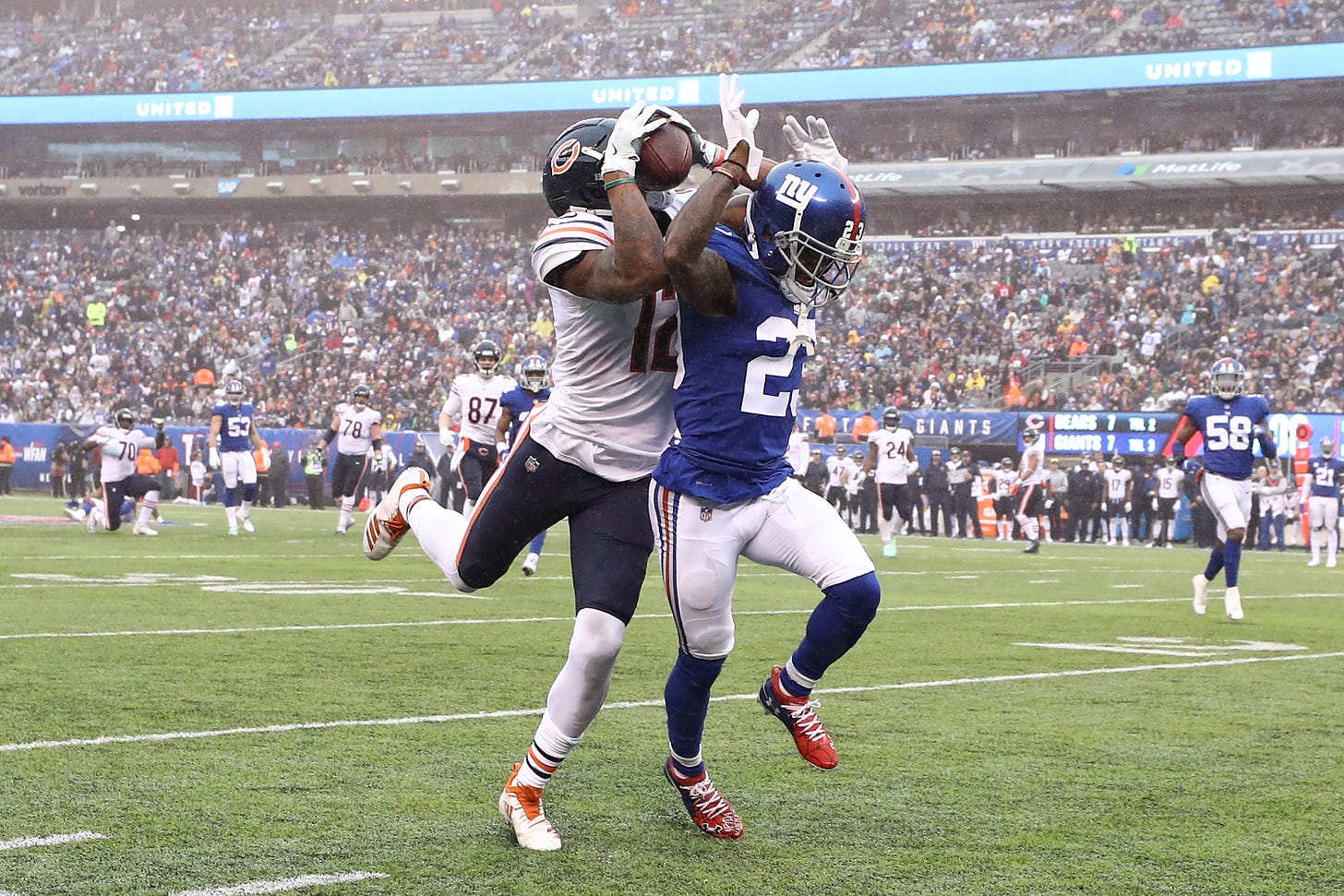

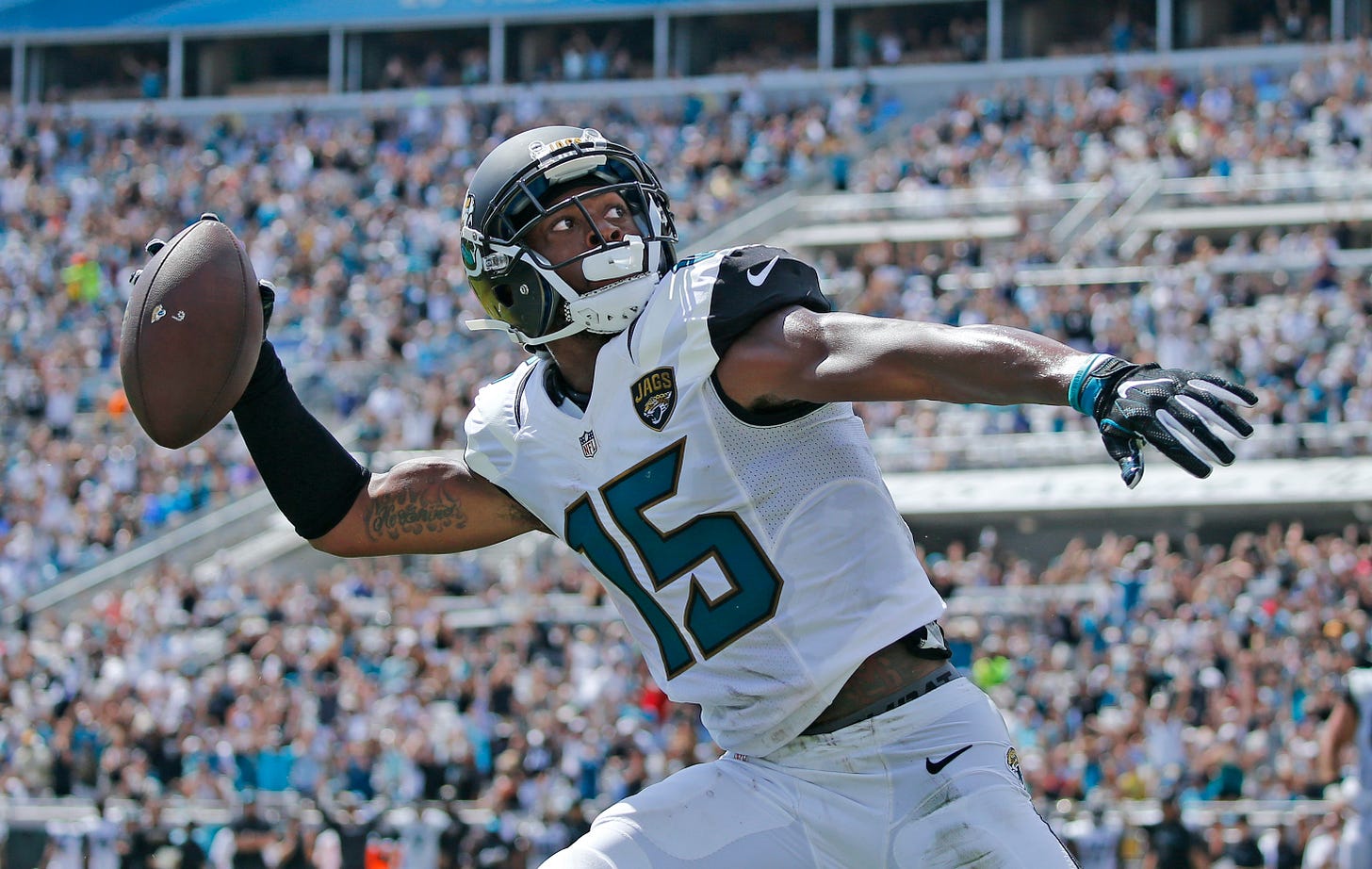
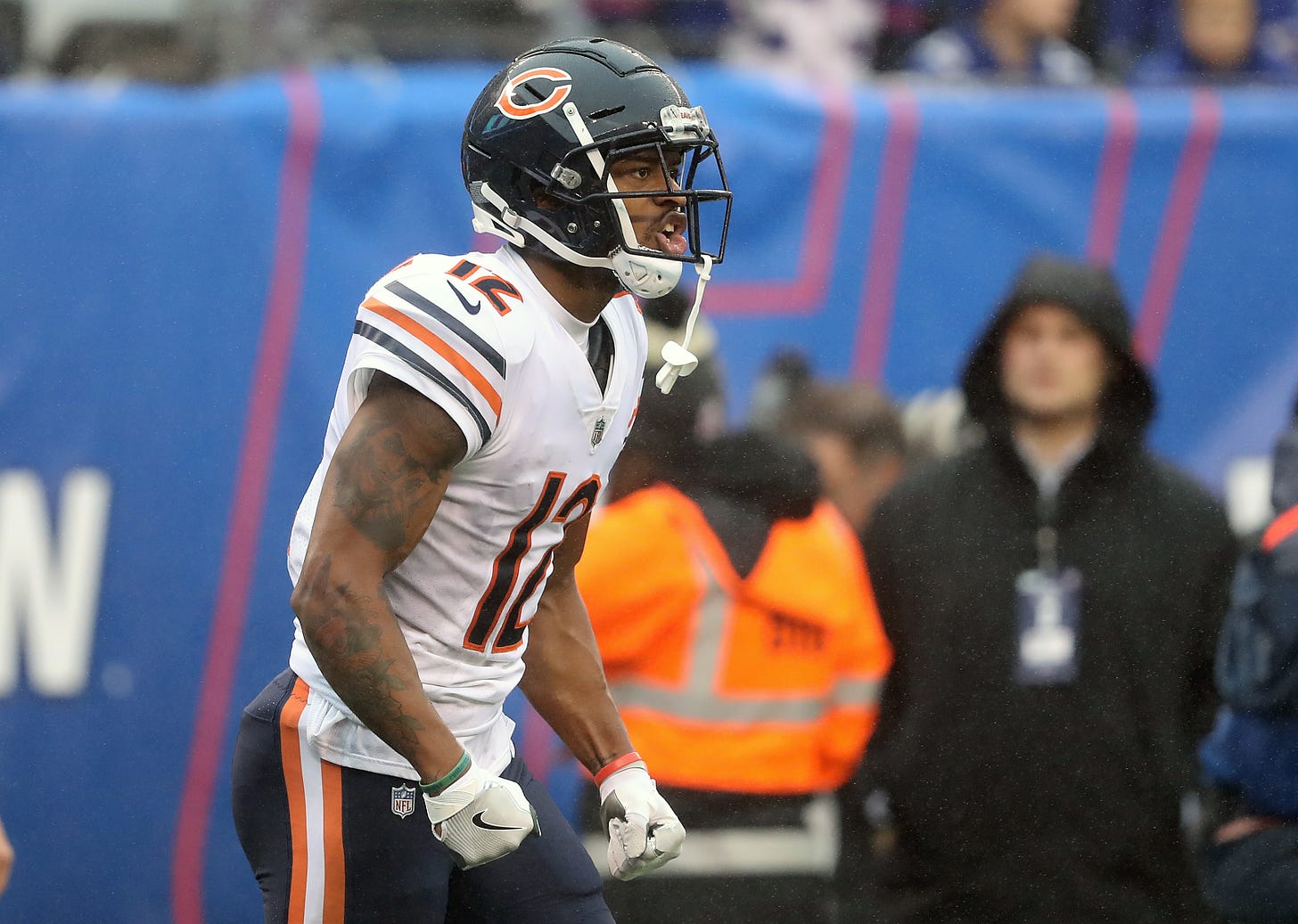
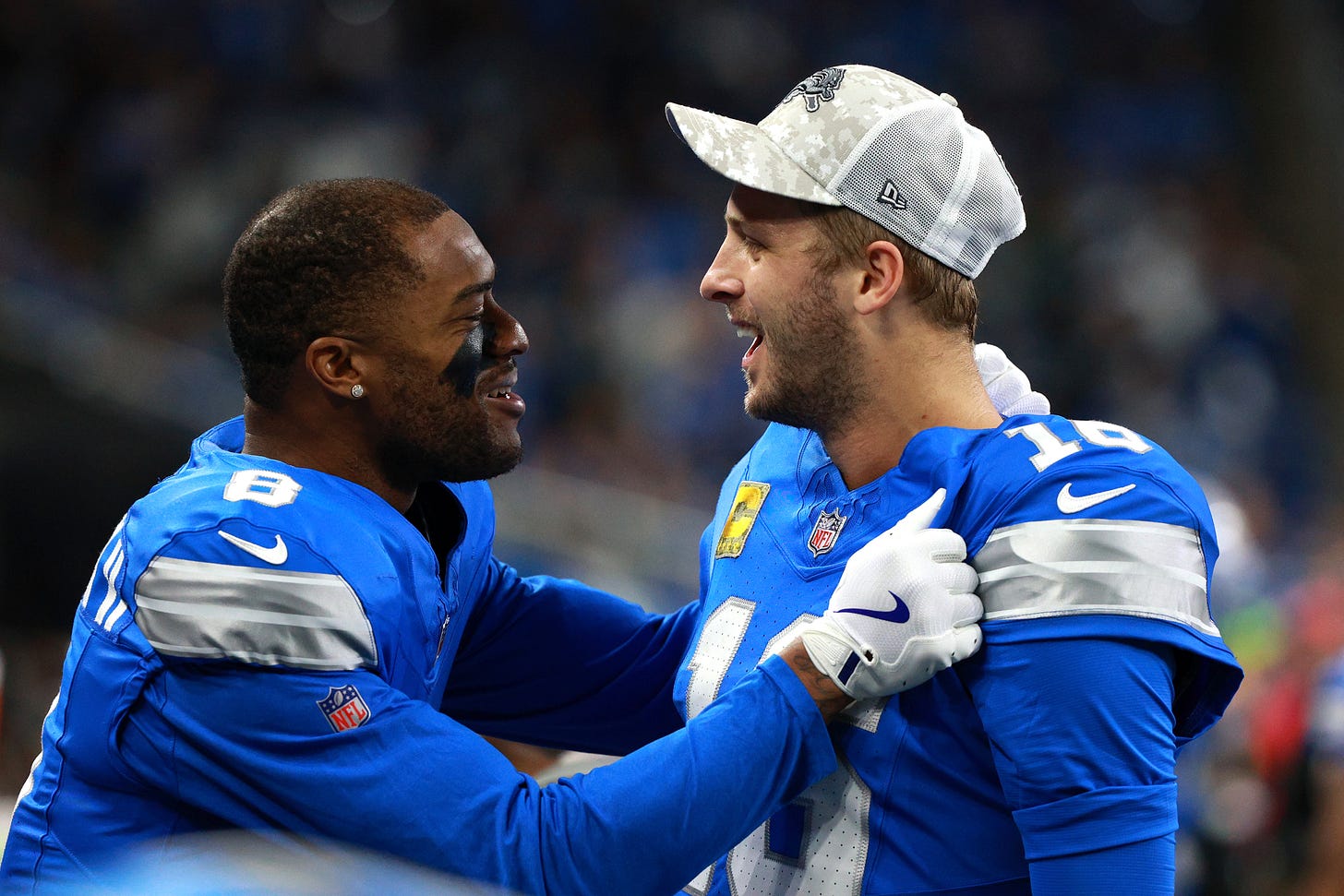
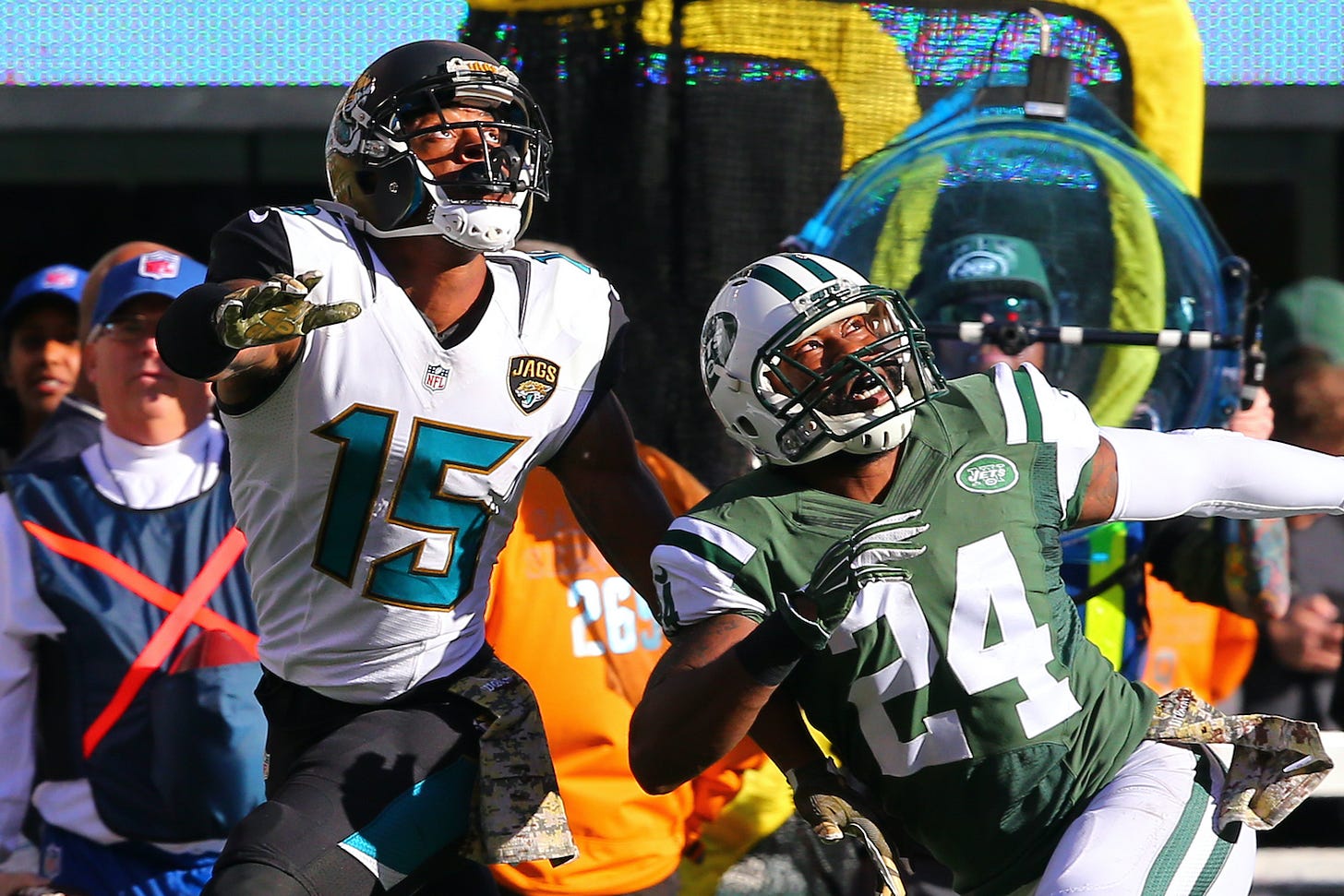
this is great, thanks for sharing!
Thanks for the transcript!